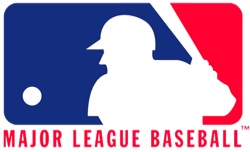 It took several ballots after a late run by large-market team owners, but Rob Manfred, as expected, was selected as the new commissioner of Major League Baseball.
It took several ballots after a late run by large-market team owners, but Rob Manfred, as expected, was selected as the new commissioner of Major League Baseball.
Manfred will replace Bud Selig, the former Milwaukee Brewers owner who led Major League Baseball through an amazing renaissance, with the sport blossoming into an $8-million industry. (We detail here the industry’s rise after the 1994 players strike.) Manfred, an attorney who joined Major League Baseball in 1998, was a key part of that rise, which is why many in baseball assumed he would face no issues in succeeding Selig.
But, of course, when there is so much money at stake there is bound to be some in-fighting, and we saw that when a few big-market team owners — Jerry Reinsdorf, John Henry and Arte Moreno — mount a last-minute campaign for Tom Werner, another Red Sox owner and former owner of the San Diego Padres. Werner, Manfred and Tim Brosnan made their pitches to MLB owners on their merits, and it sounds like the meetings were pretty intense. One key issue for many owners is where Werner stood on revenue sharing, and while Werner at first declined to address the issue when raised by Bill DeWitt of the Cardinals, he then said he would not increase revenue sharing to small-market teams, even though he had been a strong advocate of revenue sharing as a Padres owner. That stance probably cost him some support.
In the end, it took several ballots for Manfred to reach the magic number of 23 votes needed for approval, even though he started the first round with 22 votes. Werner’s advocates threw in the towel, leading to Manfred’s unanimous approval. From The New York Times:
Under Mr. Selig’s watch, Major League Baseball has grown into a flourishing business that brings in $8 billion in annual revenue. The league and its players union have also enjoyed an unusually long period of labor peace in recent years.
Mr. Manfred was set up to be Selig’s handpicked successor, the faithful deputy who had played important behind-the-scenes roles since he began working for baseball on a full-time basis full time in 1998. For 15 of those years, he was an executive vice president, in charge of both labor relations that were devoid of any work stoppages and the sport’s increasing efforts to crack down on the use of performance-enhancing drugs.
RELATED STORIES: Commissioner’s race thrown into tumult, as some owners back Werner
—-
Share your news with the baseball community. Send it to us at editors@augustpublications.com.
Are you a subscriber to the weekly Ballpark Digest newsletter? You can sign up for a free subscription at the Newsletter Signup Page.
Join Ballpark Digest on Facebook and on Twitter!
Follow Ballpark Digest on Google + and add us to your circles!
